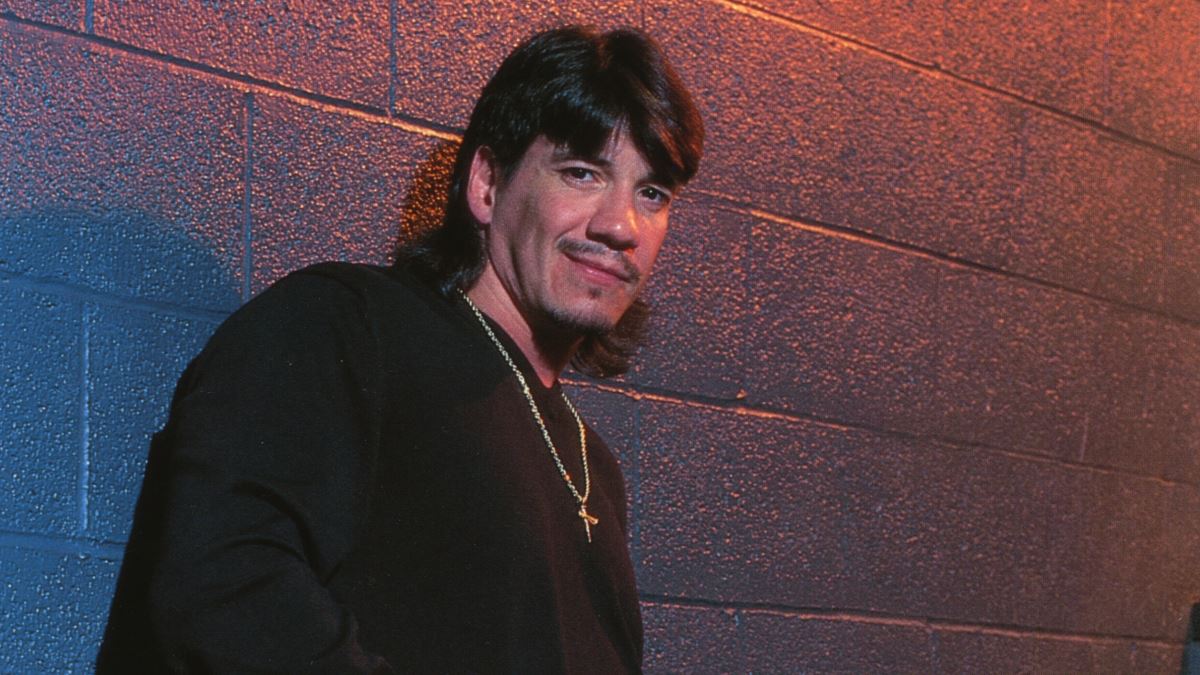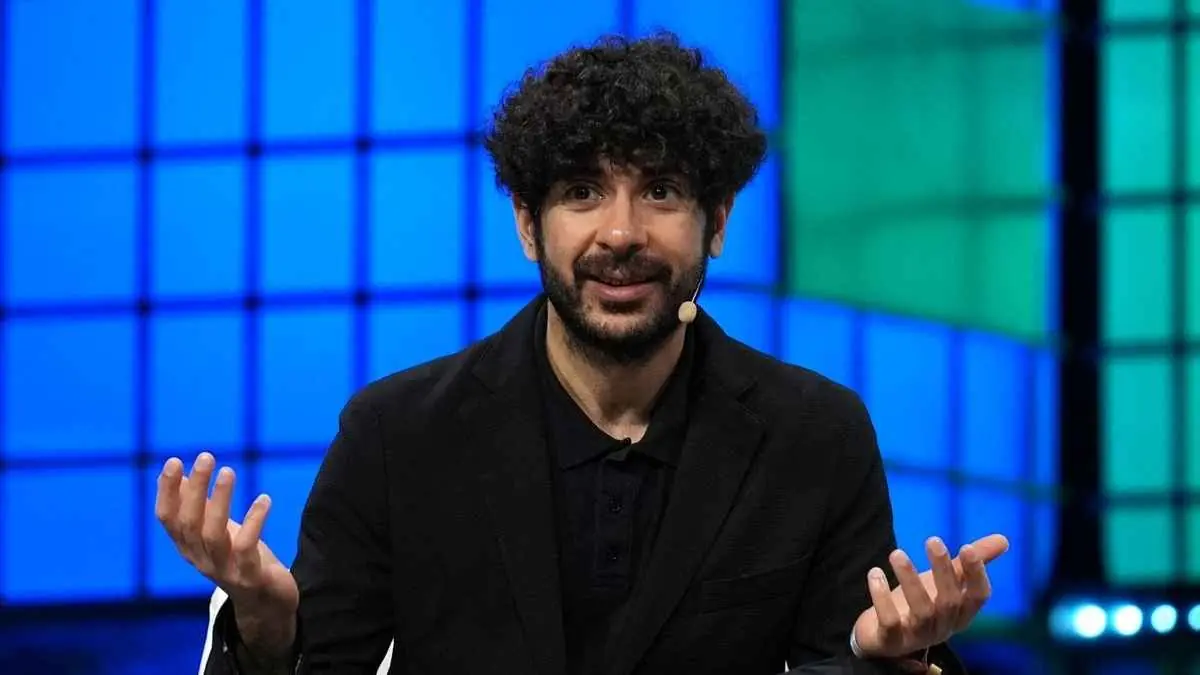WWF viewers were somewhat surprised this past Monday when a scheduled Eddie Guerrero vs. Matt Hardy ‘King of the Ring’ qualifying match on RAW was replaced with an impromptu Matt Hardy vs. Jeff Hardy match up.
The next day, word spread over the Internet that Guerrero was sent home from the RAW tapings after WWF officials saw him backstage and determined he was in no condition to work. Many reports labelled Guerrero’s behaviour as ‘belligerent’ and speculated that he had become addicted to painkillers.

Jim Ross, Senior Vice President of Talent Relations for the WWF, insists reports of Guerrero being addicted to painkillers are premature and characterizes the issues facing Guerrero as a personal problem.
“Eddie Guerrero is away, he’ll be off the WWF roster while he’s addressing a personal problem. We wish him the very best in this situation,” Ross told SLAM! Wrestling over the phone this afternoon from his office in Stanmford, CT. “We don’t know what all of his drug issues are. That’s why he’s getting treatment. And then they’ll tell us what his issues are once they are diagnosed. We’re getting him the best help we can. He’s sick, he has an illness and we’re trying to get him cured. And if we get him cured, then hopefully he’ll be back better than ever.”
Ross also stressed that the WWF is supporting Guerrero in every possible way during this crisis.
“We’re standing behind Eddie. He’s getting his cheques so his family can support themselves while he is unable to work. We are providing the care for him, so I think we’re standing solidly behind Eddie Guerrero.”
Ross believes Guerrero will rebound from these problems and make a comeback.
“I have every belief he will be able to come back. I refuse to sit on the fence and say ‘I don’t know’. My belief is that Eddie Guerrero will kick this problem if Eddie Guerrero chooses to. If Eddie Guerrero is willing to make a commitment to get his life in order, he will beat the problem. And I have every belief that that’s exactly what he’s going to do. We’re going to give him the best help available and the best support we can.”
Ross asserts the WWF’s decision to publicly support Guerrero has sent a message to the rest of the locker room that if they have a similar problem, the company will not fire them but instead go to great lengths to get them help.
“We’ve done that over the years. It is a correct message (we’re sending). We did the same thing with Steve Regal and he successfully came through and is now one of our most viable and integral performers of our company. We’re standing behind Eddie and his family during a very trying time. We’re going to do all we can to make sure his family’s needs are taken care of, so that there’s no pressure on the family unit from that perspective so that they can focus on one thing and that’s helping Eddie to get healthy again and to extend his life by addressing his problem.”
“This was the first time that we had seen Eddie in this degree of condition and the very first time we saw him at this level, we shut everything down,” explained Ross. “We sent him home, we made the arrangements to get him into therapy and rehab and we are standing solidly behind him and his family while he is going through treatment. We hope and pray that he will have as much success in this treatment program as he possibly can and can come back and become a productive member of our roster. That is our goal. That is what we want. Maybe he can help others going forward through this experience much like Steve Regal has helped guys in talking about this issue.”
Ross takes exception with reporters, critics and fans that feel the WWF are being hypocritical in its handling of Guerrero, pointing out that Brian Christopher was recently fired over his arrest for drug possession in Calgary.
“We’ve always stood behind our guys. Well, ‘what about Brian Christopher’ people say? Well, that’s a whole different ball game. First of all, Brian Christopher was caught with illegal drugs. Eddie Guerrero’s drug issues were not of that variety. Brian Christopher’s deal was an entirely different matter. He was caught with illegal drugs in his possession. Eddie Guerrero was not caught with illegal drugs in his possession. How they can be one and the same is beyond me.”
“Both these issues are as different as an apple and an orange,” continued Ross. “The only thing they have in common is they’re both very unfortunate situations but they came about with entirely different sets of circumstances. Brian Christopher was caught with illegal drugs in his possession. I don’t know what else we could do but say ‘Brian, we’re not going to do business with you because of this’. He understood that.”
Despite being ugly chapters in recent WWF history, Ross feels the company handled both situations correctly.
“I think we handled them appropriately in both situations. We’re not going to tolerate the illegal stuff that Brian unfortunately got experienced with. Eddie’s issues are a whole different ball game. People that are looking at them as if the were the same, I think they must be insensitive people because you’ve got one guy being caught for having some illegal drugs to party with and you’ve got another guy with a problem. They’re totally different issues. Anybody with any degree of common sense can see that.”
Christopher’s drug arrest caught Ross totally off guard.
“Brian did not show any signs (that he had a drug problem). None of us had any indications that he did or does have a drug problem. There was never any tardiness, there was never any of him being inordinately late for work or uncooperative, no mood swings or absenteeism that one would correlate in any workplace with these sorts of issues. So it was a shock to all of us when Brian was arrested in Calgary. And he made a very, very costly mistake. A total lapse in judgement. From the use of the illegal substances, if that is indeed true, to certainly the possession of them.”
In the aftermath of the arrest, Ross spoke to Christopher and offered him advice.
“Unfortunately, Brian made a mistake that cost him his job. I told him that this could be a tremendous learning experience or it could not. You’ve got a chance to make a turn in the road that’s going to take you to good things or a turn in the road that’s going to take you to bad things. You’re driving. You can turn this negative into a positive if you choose to. I like Brian. I think the world of his dad. I enjoyed working with his dad, the whole nine yards. And I still like them both.”
Ross feels that the pressure of living up to the family names were, perhaps, a little too much for Guerrero and Christopher to deal with.
“They both are second-generation guys. They have a lot of pressure from their fathers and other family members to live up to the expectations of the family name or legacy. I do believe both guys are good-hearted people, I do believe both guys are extremely talented.”
Asked if these two incidents prompt the WWF to institute a comprehensive drug testing policy, Ross answered an emphatic ‘No’.
“We do drug tests upon cause or we take appropriate action upon cause. We had a situation where in our view Eddie Guerrero was unfit to work and we took action. He’s in therapy. I don’t know what else I could do with him?”
Ross has followed the coverage of the Eddie Guerrero situation on the Internet closely and is troubled by reports that automatically assume he’s addicted to painkillers. He’s also bothered by what he describes as the ‘total lack of sensitivity’ exhibited by the wrestling media.
“Anybody that’s talking about it is talking about it with a total lack of sensitivity because it’s newsworthy. Like it’s good dirt. Oh man, this is good juicy sh-t here. This is the real stuff. This is what we love to report. This is about drugs. And I’m so disillusioned with that whole mindset.”
Ross also refutes claims made in the media that Christopher’s dismissal is a result of the hard feelings between Jerry Lawler and the WWF after he quit the organization in February.
“That’s absolutely ridiculous. I’m not going to get into all of that bullsh-t because I get dragged right back into ‘oh, well it’s a Lawler thing. It’s a King deal’. And that’s people reaching. That’s people trying to maintain their importance and maintain their positioning and that’s sad. That’s a whole different ball game.”
RELATED LINKS



